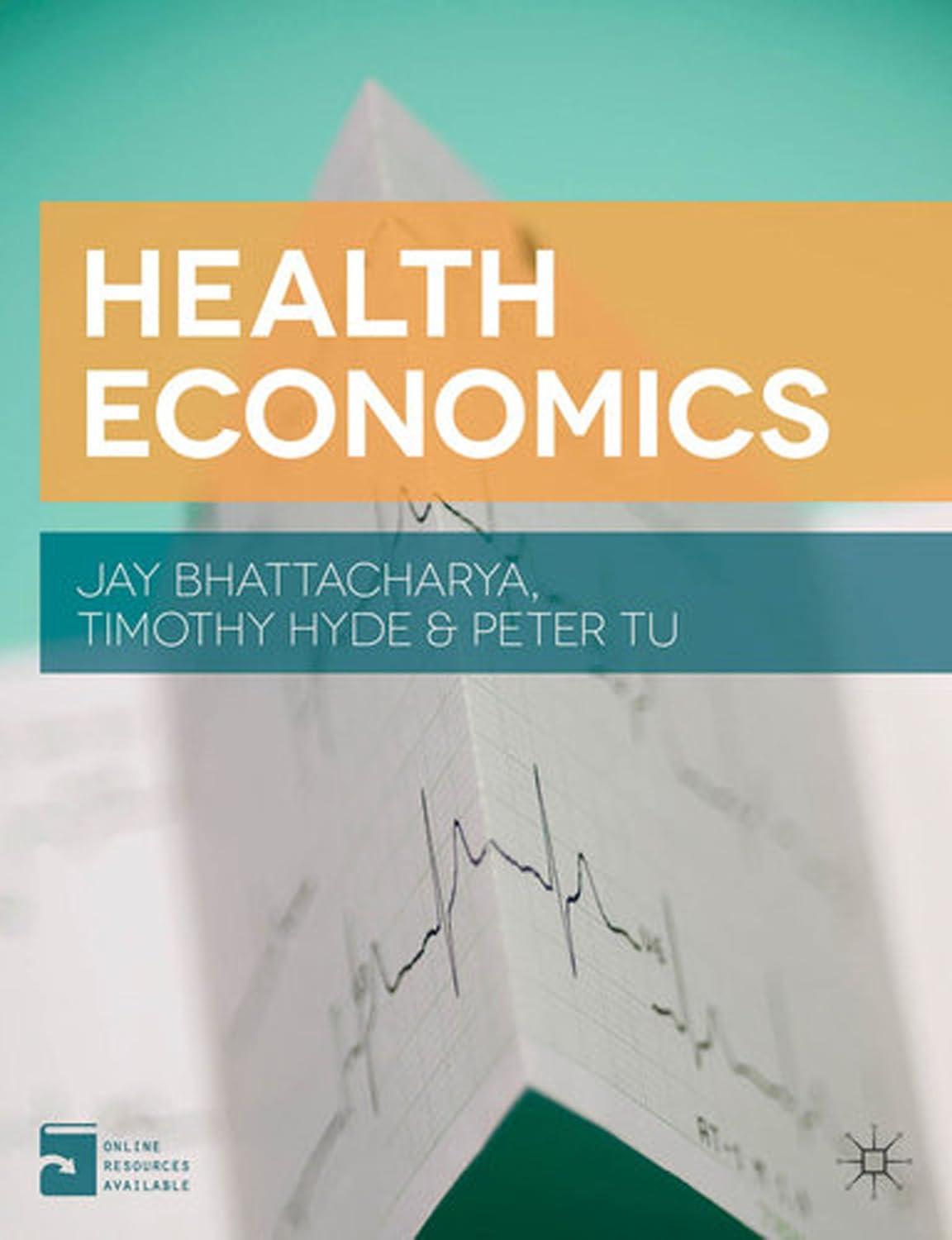The SARS virus is a particularly virulent form of the flu virus that spread through Taiwan and
Question:
The SARS virus is a particularly virulent form of the flu virus that spread through Taiwan and many parts of China in the mid-2000s. In a recent National Bureau of Economic Research working paper entitled “Learning during a crisis: the SARS epidemic in Taiwan” by Daniel Bennett, Chun-Fang Chiang, and Anup Malani (2011),
the authors observe that:
When SARS struck Taiwan in the spring of 2003, many people feared that the disease would spread through the healthcare system. As a result, outpatient medical visits fell by over 30% in the course of a few weeks.
a. Is staying home from seeing the doctor a rational response to an epidemic like SARS?
b. Leaving aside the probability of catching an infectious disease like SARS while going to the doctor, there is a distribution over the marginal benefit that patients gain from an outpatient visit. Some of the most sickly patients benefit a lot, while those with mild conditions probably receive only minor help from seeing a doctor.
Which sorts of patients were more likely to stay at home in the face of the SARS epidemic? What is the effect on the excess burden of SARS?
c. Suppose there are some patients who are not susceptible to SARS but whose health is harmed because they skipped a visit to the doctor. Should the harm to these patients’ health be counted as part of the excess burden of SARS? Now consider the patient who avoids iatrogenic harm – harm caused by inappropriate medical treatment – because she stayed home instead of going to the doctor.
Should this effect be included in the excess burden calculation? What is the effect on the excess burden of SARS?
Step by Step Answer:






